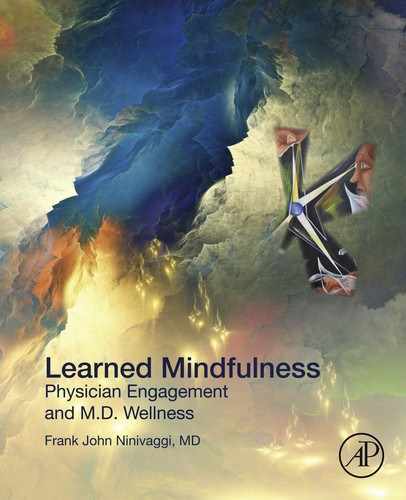Preface
This book on mindfulness is an independent, one-authored text by a physician with training in child, adolescent, and adult psychiatry both at Johns Hopkins and at Yale New Haven Hospitals. Working over the past four decades primarily with patients in clinical settings has provided exposure to a broad repertoire of patient concerns and an array of therapeutic interventions. The last decades have been novel in that patients request mindfulness interventions to complement and be part of standard therapeutic approaches. Thus, this clinical contribution emerged. Implied is the mindfulness of the clinician as model and practitioner conducting clinical work imbued with mindfulness strategies both implicit and explicitly shown.
Fortuitously, I have been a meditator for close to 50
years. I have had personal training from traditional Eastern teachers. About 20
years ago, I received professional training and certification in Ayurveda, the Traditional Medicine of India. A comprehensive textbook on Ayurveda also resulted. With these, retraining in both Buddhist and Yoga meditation further refined my capacities. On the scaffolding of Western science and medical training, this contribution aspires to demystify what may have been viewed as occult, if not eclipsed from the rigors of Western examination. As a member of Yale Medicine's Physician Engagement, Wellness, and Burnout Prevention Committees, my contemporary rebooting added timely relevance, made sharing these skills possible, and added credibility to this book.
My colleague, Justin Brewer, has underlined how modern science and findings from his laboratory research into brain mechanisms linked with mindfulness reinforce the validity of nonconscious changing—providing evidence that this works. My training in meditation ran parallel to several personal psychoanalyses in London and New Haven. The overlap of both approaches exposes implicit information bringing it to conscious awareness, and access to effortful mental and behavior change, notably nonconscious changing seen and felt consciously. The broad impact of this self-modulation on purposeful self-regulation has remained an effective work-life asset for me.
I extend my gratitude to Elsevier Press for allowing me to formalize an overview of meditative awareness. This book is a schematic introduction to the complex and formidable task of making sense of mindfulness in the 21st century. Learned Mindfulness as part of my model of emotional intelligence innovates proposals in this text written above all, for other physicians.
The Introduction is an encapsulation of the book's essence.
January 2019
..................Content has been hidden....................
You can't read the all page of ebook, please click here login for view all page.
